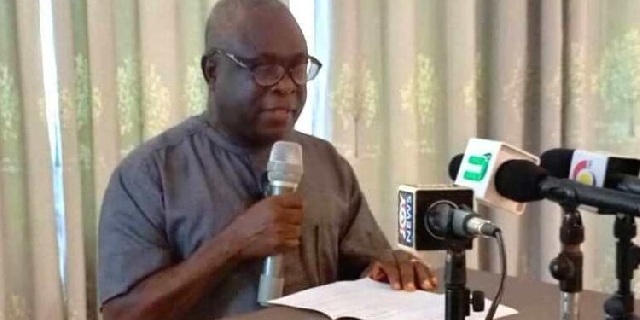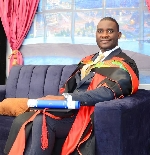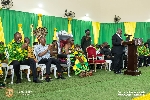Continuous registration best practice for enrolling new voters – EC Director
 Mr John Appiah Baffour
Mr John Appiah Baffour
Mr. John Appiah Baffour, the Eastern Regional Director of Elections for the Electoral Commission (EC), has acknowledged that the most effective way to register citizens who have turned 18 is through continuous registration.
However, he noted that the EC is unable to fully implement this due to the lack of a robust identity system in the country.
Speaking at a two-day workshop on "Election Reporting and Best Practices" in Somanya, Mr. Appiah explained that the ideal process would involve opening district EC offices across Ghana, where eligible voters could walk in with their GhanaCards and register.
Unfortunately, this system faces challenges as many citizens do not yet possess the GhanaCard, making it difficult for the EC to carry out seamless registrations.
He added that this shortfall has made mass voter registration exercises necessary, despite the acrimony and high costs associated with them.
“With continuous registration, we would be able to eliminate the tensions that often accompany mass registration exercises and save costs,” Mr. Appiah admitted.
The workshop, organized by the Private Newspaper and Online News Publishers Association (PRINPAG) under the theme "Empowering Journalists for Credible Elections: Enhancing Reporting and Fact-Checking Skills," was held with the support of the Ministry of Information.
It aimed to build the capacity of journalists on ethical and accurate election reporting.
In her remarks at the event, Minister of Information Fatimatu Abubakar urged media practitioners to uphold professionalism and ethical standards as Ghana prepares for its next general election.
She emphasized the vital role of journalists in preserving peace and stability, particularly by combatting misinformation and disinformation.
Ms. Abubakar warned of the growing global challenge of false information, which she said threatens democratic processes.
She cited concerns raised by organizations such as Reporters Without Borders and the World Economic Forum, stating that the spread of misinformation could be more harmful than even the COVID-19 pandemic.
“We’ve been concerned that the media space, particularly the online ecosystem, is becoming increasingly complex with the rise of AI and other sophisticated tools,” she said.
The Minister also highlighted efforts by the Ministry of Information to train journalists through the Media Capacity Enhancement Programme (MCEP), now in its third cohort, to equip them with the skills necessary to navigate this evolving landscape.
She commended PRINPAG for initiating training programmes and emphasized the responsibility of journalists to uphold ethical standards.
“Our 1992 constitution does not censor, but with that freedom comes the responsibility to ensure we are ethical and professional,” Ms. Abubakar said.
In closing, she encouraged Ghanaian journalists to adopt fact-checking techniques, referencing the recent U.S. presidential debate where moderators verified candidates' claims in real-time, and urged the local media to do the same to prevent the spread of false information during political coverage.
Source: Classfmonline.com/Cecil Mensah
Trending News

Mahama criticises Akufo-Addo's statue unveiling amid economic hardships
17:42
I will do everything within my powers to ensure Bawumia becomes President – Napo tells Mamprugu Overlord
11:45
A/R: NPP neglects your development – Asiedu Nketia urges Amoakokrom, Ahwerewa voters to support NDC
11:16
C/R: Repair our roads before Dec. 7 - Angry Breman Esiam residents to gov't
03:30
Bishop Goldsmith urges tolerance ahead of 2024 elections
02:55
C/R: Kasoa residents worry about negative tag
15:04
Mahama slams judiciary over SALL exclusion; calls for fairness and reform
09:49
Ghana records 34,000 new HIV infections in 2024
11:03
Afenyo-Markin pledges to support 1,662 JHS graduates from Effutu
03:14
Akufo-Addo expresses pride in sustaining Free SHS amid challenges
02:48



